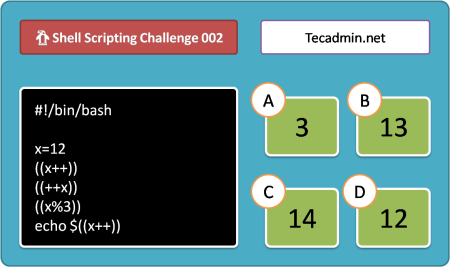In the realm of Bash scripting, comparison operators play a crucial role in decision-making processes. Among these operators, the -ge operator stands out as a fundamental tool for comparing numeric values. This comprehensive guide aims to demystify the -ge operator, providing insights into its usage, examples, and best practices.
What is the -ge Operator?
In Bash, -ge stands for “greater than or equal to”. It is a binary operator that compares two numeric values. If the value on the left is greater than or equal to the value on the right, the operator returns a true (0) result; otherwise, it returns false (1).
Syntax
The syntax for using the -ge operator in a Bash script is as follows:
if [ "$a" -ge "$b" ]
then
echo "a is greater than or equal to b."
else
echo "a is less than b."
fi
In this example, $a and $b represent numeric values. The square brackets [ ] are used to enclose the test expression.
Usage Examples
- Basic Comparison
Let’s consider a simple example where we compare two numbers:
#!/bin/bash a=10 b=5 if [ "$a" -ge "$b" ]; then echo "$a is greater than or equal to $b." else echo "$a is less than $b." fiThis script will output “10 is greater than or equal to 5.” because 10 is indeed greater than 5.
- Comparing Variables
In real-world scenarios, the values for comparison are often stored in variables. Here’s how you might use -ge in such cases:
#!/bin/bash read -p "Enter the first number: " first read -p "Enter the second number: " second if [ "$first" -ge "$second" ]; then echo "The first number is greater than or equal to the second number." else echo "The first number is less than the second number." fiThis script prompts the user to input two numbers and then compares them using the -ge operator.
- Loop Control
The -ge operator can also be useful in controlling loops. For example:
#!/bin/bash counter=0 limit=10 while [ "$counter" -ge 0 ] && [ "$counter" -le "$limit" ]; do echo "Counter: $counter" ((counter++)) doneThis script prints numbers from 0 to 10, demonstrating how -ge can be used in conjunction with other comparison operators for loop control.
Best Practices
- Quote Variables: Always quote your variables when using them in a test expression to avoid syntax errors or unexpected behavior, especially when a variable might be empty or contain spaces.
- Use Double Brackets: Consider using double brackets [[ ]] for test expressions. They provide several advantages over single brackets, including the ability to use && and || operators without needing to quote variables.
- Numeric vs. String Comparison: Remember that -ge is intended for numeric comparisons. For string comparisons, use operators like ==, !=, >, and <.
Conclusion
The -ge operator is an essential tool in Bash scripting for comparing numeric values. Understanding how to use it effectively can enhance your scripts’ decision-making capabilities. By following the examples and best practices outlined in this guide, you’ll be well-equipped to incorporate the -ge operator into your Bash scripts confidently.



